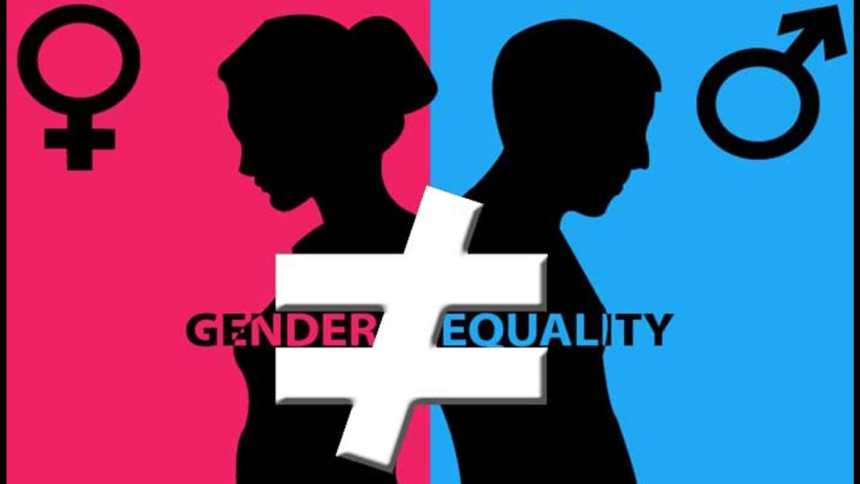The Vital Role of Local Governance in Jammu and Kashmir
Sheikh Sameer
In order to understand the present state of local governance in Jammu and Kashmir, it is important to delve into its historical background. Jammu and Kashmir have a complex history of governance due to its unique political and geographical circumstances. Over the years, the region has been governed through different administrative structures, including feudal systems, princely rule, and centrally imposed governance models.
Today, Jammu and Kashmir has its own elected local governance bodies, known as Panchayats and Municipalities. These institutions play a crucial role in grassroots-level governance and decision-making. However, the effectiveness and functioning of these bodies vary across different regions of Jammu and Kashmir. It is important to analyze the current state of local governance structures to assess their impact on democratic processes and gender equality.
Deepening Democracy
Deepening democracy refers to the process of strengthening democratic values, institutions, and practices within a society. In the context of Jammu and Kashmir, deepening democracy involves promoting inclusive participation, protecting civil liberties, and ensuring accountable governance. Local governance plays a crucial role in this process by providing opportunities for citizen engagement and grassroots-level decision-making.
Local governance acts as a bridge between the citizens and higher levels of government. It enables people to participate actively in decision-making processes that directly impact their lives. Through local governance bodies, individuals can voice their concerns, propose solutions, and contribute to the development of their communities. This active participation fosters a sense of ownership and empowerment among citizens, thereby strengthening the overall democratic fabric.
The impact of local governance in Jammu and Kashmir’s democratization process cannot be underestimated. It has contributed to increased political awareness, empowered marginalized communities, and enhanced public accountability. By providing opportunities for citizen participation, local governance has helped in building trust between the government and citizens, leading to more inclusive and responsive decision-making.
Recognizing the Need for Women’s Inclusion
Women’s participation in local governance is crucial for promoting gender equality and ensuring that their voices are heard in the decision-making processes. Historically, women have been underrepresented in political spheres, and their exclusion perpetuates gender inequalities. Inclusion of women in local governance enhances the representation of diverse perspectives and promotes policies that address the specific needs and concerns of women in Jammu and Kashmir.
Increased women’s participation in local governance brings numerous benefits. It fosters gender-responsive policies, promotes women’s rights, and challenges entrenched gender norms. Women’s involvement in decision-making processes leads to the formulation of more inclusive and equitable policies that address gender-based violence, economic disparities, and social discrimination. Moreover, women’s participation inspires and empowers other women, breaking barriers and stereotypes.
Sociocultural Barriers and Gender Stereotypes
Despite the importance of women’s participation, Jammu and Kashmir faces various challenges that hinder their engagement in local governance. Sociocultural barriers and gender stereotypes restrict women’s mobility, limit their access to education and resources, and perpetuate patriarchal norms that discourage their active involvement in decision-making processes.
Legal and institutional challenges also pose obstacles to women’s participation in local governance in Jammu and Kashmir. Inadequate representation, a lack of gender-sensitive policies, and limited support mechanisms for women candidates hinder their entry into political arenas. Reforms are needed to ensure equal opportunities, remove legal barriers, and establish mechanisms that support and promote women’s participation.
Another barrier to women’s participation in local governance is the lack of access to resources and capacity-building opportunities. Limited financial resources, lack of training, and inadequate networks restrict women’s ability to campaign for elections and effectively contribute to decision-making processes. Addressing these gaps by providing targeted support and resources is crucial for promoting women’s participation in local governance.
Strengthening Legal Frameworks and Policies
To increase women’s participation in local governance, it is crucial to have strong legal frameworks and policies in place that promote gender equality. This can include laws that require a certain percentage of women’s representation in local governing bodies or provisions that ensure equal opportunities for women to participate in decision-making processes. By strengthening these frameworks, we create a more inclusive environment where women have a voice and can actively contribute to shaping their communities.
One of the key strategies to enhance women’s participation in local governance is to promote gender sensitization and awareness among both men and women. This involves challenging societal norms and stereotypes that limit women’s roles in decision-making and leadership positions. By conducting training programs, workshops, and awareness campaigns, we can help break down these barriers and encourage a more inclusive and equal society.
In order for women to actively participate in local governance, it is essential to provide them with the necessary infrastructure and resources. This can include creating safe spaces for women to engage in discussions, ensuring accessibility to meeting venues, and providing childcare facilities to accommodate their caregiving responsibilities. Additionally, offering training and capacity-building programs can equip women with the skills and knowledge they need to effectively contribute to local governance processes.
Empowering Women through Reservation Policies
In this case study, we explore the impact of reservation policies that guarantee a certain percentage of seats for women in local governing bodies. By analyzing the experiences of communities that have implemented such policies, we can understand the positive outcomes of increased women’s representation, including the empowerment of women, the prioritization of gender-specific issues, and the diversification of decision-making processes.
This case study focuses on initiatives that aim to build women’s leadership capacities at the grassroots level. By providing training and mentorship programs, women are equipped with the necessary skills and confidence to take on leadership roles in local governance. Through this case study, we can explore the transformative impact of nurturing women’s leadership potential and the positive changes it brings to governance structures.
In this case study, we examine how women’s increased participation in local governance enhances grassroots democracy. By analyzing the experiences of communities where women have actively contributed to decision-making processes, we can observe the positive impact on governance outcomes, inclusivity, and accountability. This case study showcases the vital role women play in strengthening democratic practices at the local level.
Ensuring Gender Balance in Local Governance Institutions
To promote gender equality, it is necessary to ensure a gender balance in local governance institutions. This involves actively seeking strategies to recruit and retain women in leadership positions, as well as creating an inclusive environment that values the contributions of all genders. By striving for a gender-balanced representation, we can foster a governance structure that truly reflects the diversity of the community and promotes equal participation.
In conclusion, the role of local governance in Jammu and Kashmir is paramount in deepening democracy and promoting gender equality. By recognizing the importance of women’s participation in decision-making processes, addressing the challenges and barriers they face, and implementing effective strategies, we can create a more inclusive and representative local governance structure. Through case studies and lessons learned, we have seen the transformative power of women’s participation in local governance. It is imperative that we continue to strengthen and support these efforts, enabling Jammu and Kashmir to embark on a path towards greater democratic values and gender equality. Together, we can build a future where all voices are heard, and where local governance serves as a catalyst for positive social change.
——————————————————-




